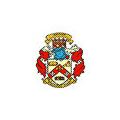Studies & Degrees in Translation and Interpretation
Choose where you would like to study Translation and Interpretation:
AlgeriaArgentinaAustraliaAustriaAzerbaijanBelgiumBrazilCameroonCanadaChinaCosta RicaDenmarkEcuadorEgyptEstoniaFinlandFranceGuatemalaHaitiHong KongIraqJapanKazakhstanLebanonMauritaniaMexicoMozambiqueNew ZealandSloveniaSouth KoreaSpainSwitzerlandThe United KingdomThe United StatesTurkeyUgandaUkraineTranslation and Interpretation Study Programs
Level: Undergraduate Bachelors
Location: Villanueva de la Cañada
Some people think that translation is merely a matter of knowing the languages in question–did you understand both English and Arabic, then you should be able to do English to Arabic translations perfectly, right? As it turns out, it's not so simple. Translation is a complex process that means more than simply knowing the words in one language and their equivalent in another language. Experts in many fields, especially philosophy, linguistics, and comparative literature are interested in theories about the process of translation for variety of reasons. Although it is unusual to pursue an entire degree in translation studies, this field is an integral part of several others.
Personal Qualities
- Skill with languages
- Strong grasp of your native language, including grammar and syntax
- Excellent writing skills – fiction, nonfiction, or poetry
- Love of reading
People who study translation theory usually do so as part of a course of study in another discipline, usually either linguistics or one of the humanities (literature, philosophy, history, etc.). It is an interdisciplinary field of study that is usually seen as an area of specialization within another discipline–that is, it is more likely that someone would consider himself a philosopher specializing in translation theory, rather than a translation here is specializing in philosophy. Even those who do not take it as an area of specialization can benefit from studying translation theory. This is especially true of linguists and comparative literature students who intend to make a career out of translation and interpretation.
Career Options
Naturally, the most obvious career choice for someone interested in translation theory is to work as a translator or interpreter. In this case, it might be best to get a degree either in linguistics or in the target language, and pick up some courses in translation theory along the way. For example, an ideal course of study for someone interested in this career path might be a double major in linguistics and Spanish, followed by a Master's degree in Spanish. Although none of the degrees are specifically in translation theory, such as student would undoubtedly find courses on translation and interpretation helpful as stepping stones along the way.


